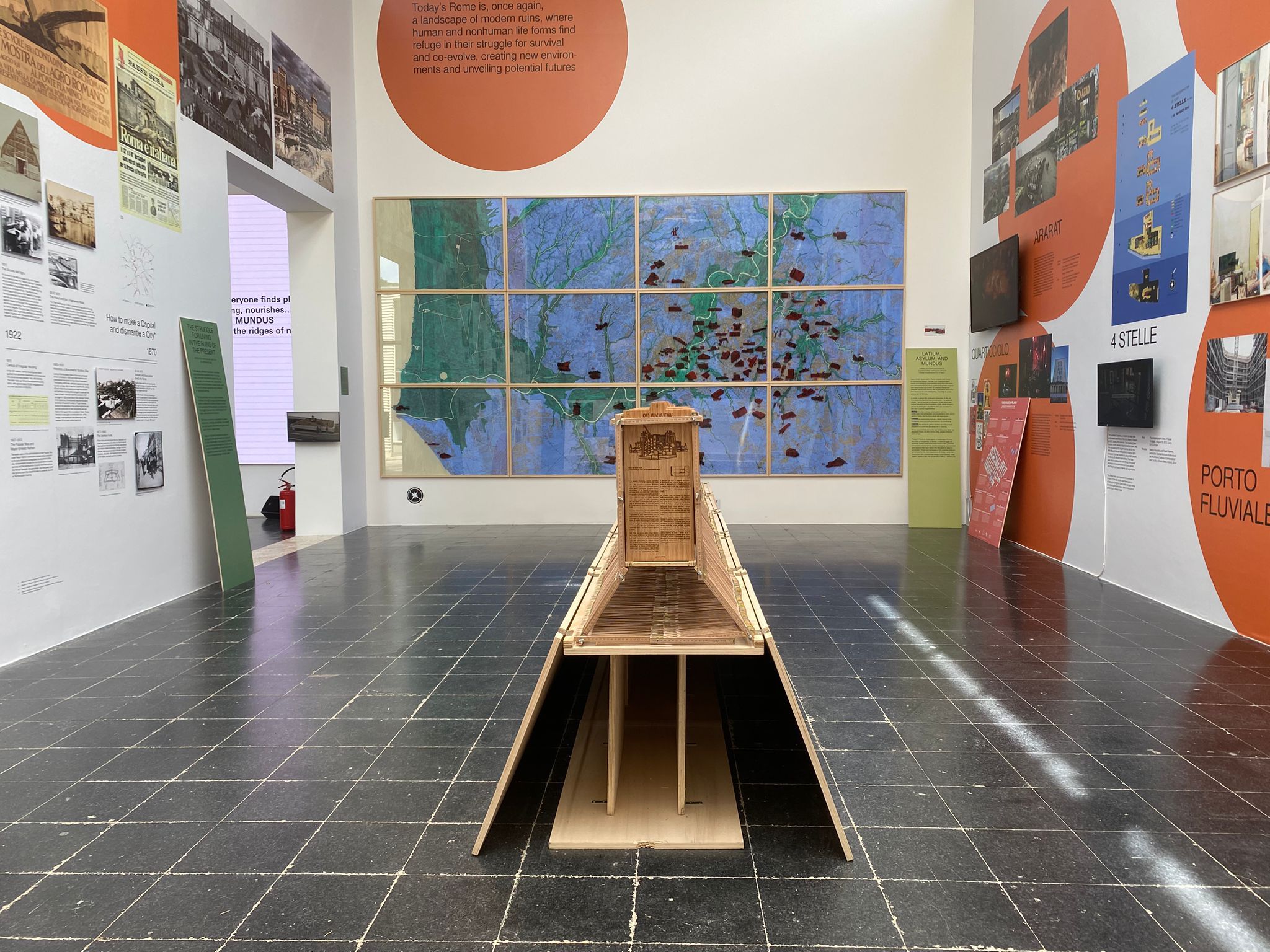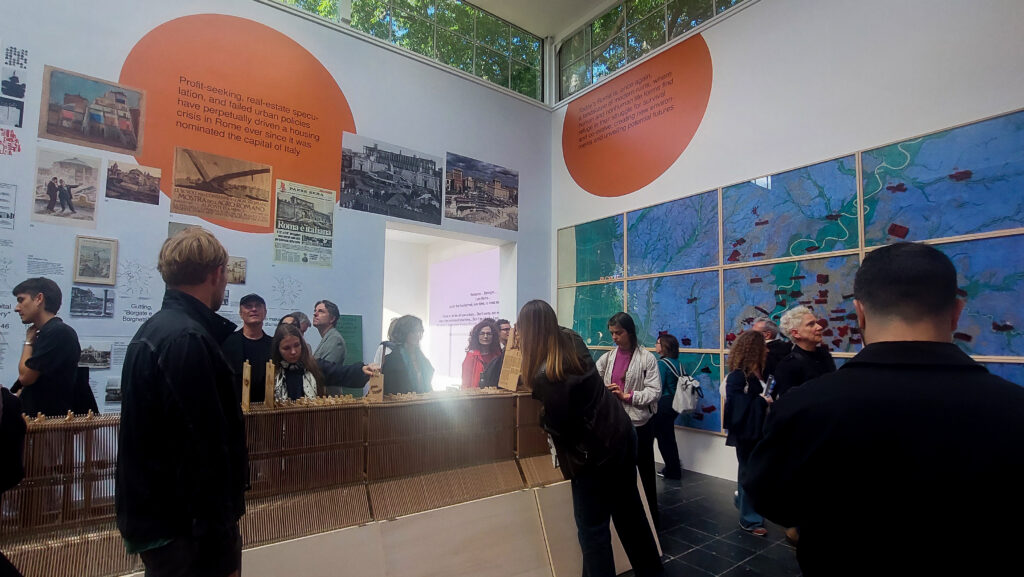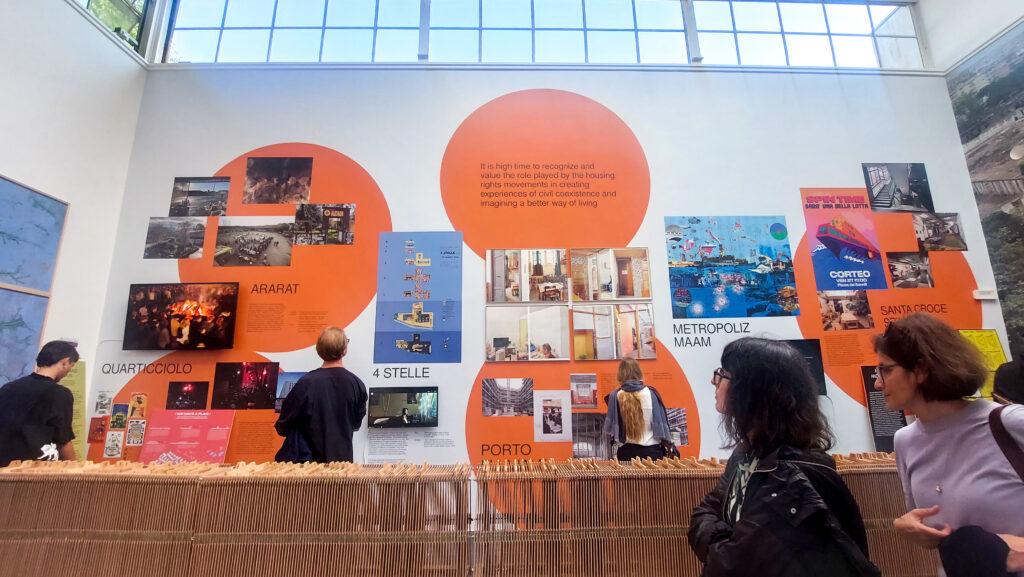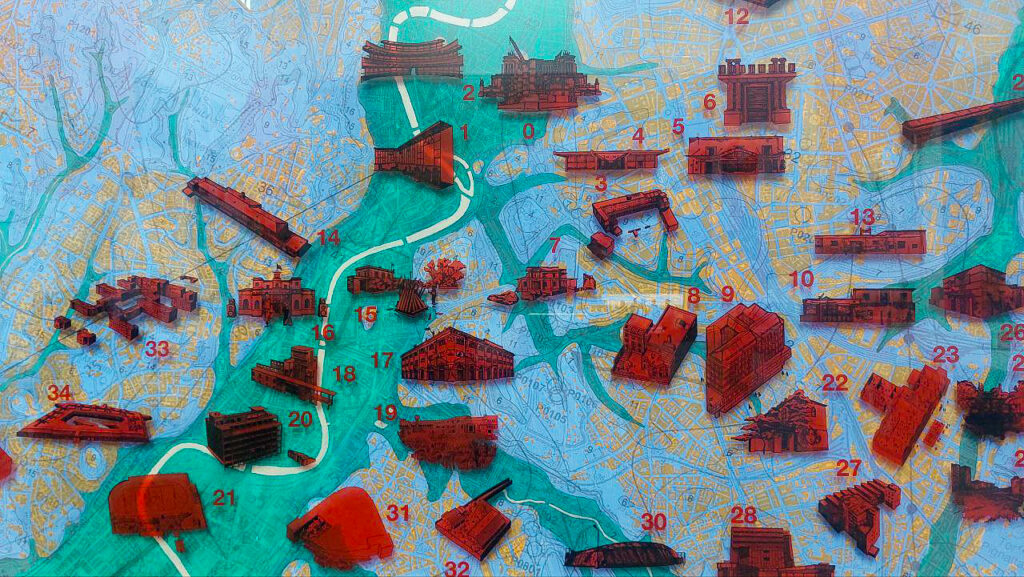IURMAP at the Architecture Biennale: in the Austrian Pavilion to showcase collective intelligence that resists

We’ve just returned from the Venice Biennale International Architecture Exhibition, where we had the honour of participating with our own contribution in the Austrian Pavilion, “Agency for Better Living”, curated by Sabine Pollak, Michael Obrist, and Lorenzo Romito.
The pavilion brings together two emblematic cities: Vienna, a European model of public planning and accessible housing, and Rome, a city that has grown without a coherent urban plan, marked by deep structural shortcomings and aggressive speculation. It’s a context where the formal and informal have always coexisted, shaping a complex, contradictory, yet profoundly vibrant urban geography.
At the heart of this year’s theme – “Artificial, Collective and Natural Intelligences” – we see ourselves reflected in the exploration of collective intelligences and natural forces that reclaim and transform urban space through concrete practices of reappropriation, regeneration, and mutual aid.
As IURMAP, we contributed a project that aims to make these energies visible: forces that move within and against the fractures of the city, turning ruins into potential, abandonment into community.
We believe it is precisely in the absence of public policy that collective and creative responses emerge, offering a different vision of what a city can be.
Inside the pavilion, stories of decades-long urban struggles and inventive resistance come to life and intertwine: the Kurdish community of Ararat, the 4Stelle Hotel, as told in the documentary by Valerio Muscella and Paolo Palermo, Metropoliz and the MAAM – Museum of the Other and the Elsewhere, Quarticciolo Ribelle, the Lago Bullicante ExSnia, Spin Time Labs, and many others.
These are all realities that build viable alternatives every day to marginalisation, social stigmatisation, and the ongoing privatisation of urban space.
Together, these experiences form a true collective intelligence, capable of imagining and shaping cities that are more just, inclusive, and alive.
These are not merely stories of resistance – they are visions of possible futures.
Telling them in an international setting like the Biennale means affirming their transformative power and collective value.
All of this has been made possible thanks to a dense network of individuals and organisations who collaborated in bringing this project to life, including Stalker/NoWorking, MAd’O – Museo dell’Atto di Ospitalità, and Spin Time Labs.
To live is not only a material condition, but a political practice of reclaiming space, and of pursuing personal and collective well-being.



